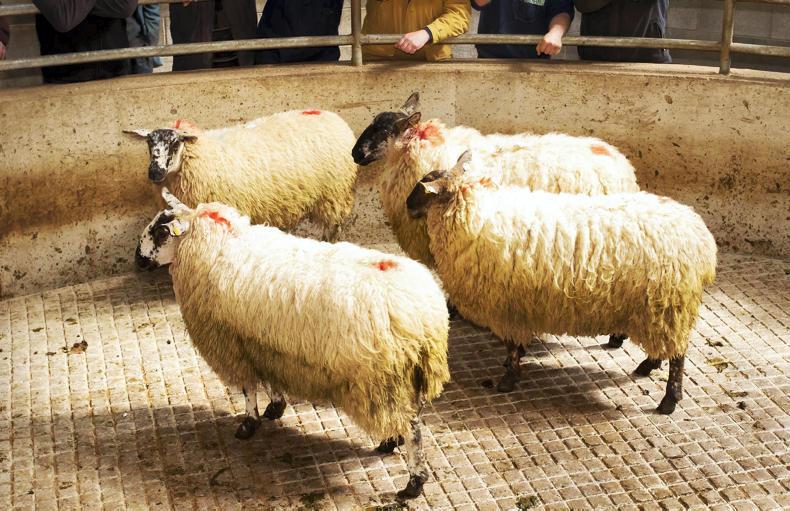There has been a rapid rise in livestock condemnations in abattoirs due to liver fluke infections, according to the Sustainable Control of Parasites in Sheep (SCOPS) and Control of Cattle Parasites Sustainably (COWS).
Speaking on behalf of SCOPS, Lesley Stubbings says: “Reports of disease are increasing across the UK, with patchy instances outside the high-risk areas. Condemnations in abattoirs have also increased rapidly in the first half of November, which highlights the need for livestock farmers to keep testing and monitoring abattoir feedback.”
UK updates
Philip Skuce, Moredun, on monitoring work in Argyll: “We’ve been sampling sheep on two sentinel farms in Argyll this year. In mid-September about a third of the sheep had positive blood tests, but were still negative on coproantigen and faecal egg counts. “This gave us an early warning they had been exposed to fluke infection, despite the fluke still being too young to show up on the faecal tests. By mid-October 23% were positive on coproantigen and 5% had fluke eggs in the dung. This really underlines how the different tests work over the season. This year it is vital we use testing to guide timing of treatments and flukicide product choice.”
Diana Williams, Liverpool University: “We had a case where the poor condition of sheep was assumed to be due to liver fluke but diagnostic testing (blood testing for lambs and dung tests for ewes) showed they were not infected. “Avoiding an unnecessary treatment not only saved the farmer a lot of money in terms of flukicide and time, but it also led them to diagnosing the real cause of ill thrift, which improved performance.”
Ben Strugnell, Farm Post Mortems Ltd, County Durham: “While it is certainly shaping up to be a much higher risk of losses from liver fluke this year than last, remember that testing, monitoring abattoir feedback and doing post-mortems on any sudden deaths are valuable tools when deciding if, when and with what to treat.”Heather Stevenson, SRUC: “So far we have seen only a few cases of liver fluke infection from Dumfries and North Cumbria, which means it is very important farmers test before they treat.”
There has been a rapid rise in livestock condemnations in abattoirs due to liver fluke infections, according to the Sustainable Control of Parasites in Sheep (SCOPS) and Control of Cattle Parasites Sustainably (COWS).
Speaking on behalf of SCOPS, Lesley Stubbings says: “Reports of disease are increasing across the UK, with patchy instances outside the high-risk areas. Condemnations in abattoirs have also increased rapidly in the first half of November, which highlights the need for livestock farmers to keep testing and monitoring abattoir feedback.”
UK updates
Philip Skuce, Moredun, on monitoring work in Argyll: “We’ve been sampling sheep on two sentinel farms in Argyll this year. In mid-September about a third of the sheep had positive blood tests, but were still negative on coproantigen and faecal egg counts. “This gave us an early warning they had been exposed to fluke infection, despite the fluke still being too young to show up on the faecal tests. By mid-October 23% were positive on coproantigen and 5% had fluke eggs in the dung. This really underlines how the different tests work over the season. This year it is vital we use testing to guide timing of treatments and flukicide product choice.”
Diana Williams, Liverpool University: “We had a case where the poor condition of sheep was assumed to be due to liver fluke but diagnostic testing (blood testing for lambs and dung tests for ewes) showed they were not infected. “Avoiding an unnecessary treatment not only saved the farmer a lot of money in terms of flukicide and time, but it also led them to diagnosing the real cause of ill thrift, which improved performance.”
Ben Strugnell, Farm Post Mortems Ltd, County Durham: “While it is certainly shaping up to be a much higher risk of losses from liver fluke this year than last, remember that testing, monitoring abattoir feedback and doing post-mortems on any sudden deaths are valuable tools when deciding if, when and with what to treat.”Heather Stevenson, SRUC: “So far we have seen only a few cases of liver fluke infection from Dumfries and North Cumbria, which means it is very important farmers test before they treat.” 





 This is a subscriber-only article
This is a subscriber-only article










SHARING OPTIONS: